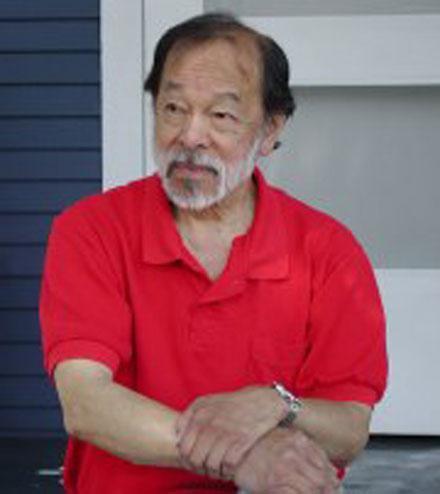Charlie Chong dies
Charlie Chong
Tue, 05/01/2007
West Seattle is fondly remembering Charlie Chong, the diminutive Admiral district resident who led a West Seattle uprising against the city's 1994 "urban village" vision of the future, was elected to the Seattle City Council, and made three runs at mayor.
Chong died April 26 of post-operative complications unrelated to surgery. He was 80. He suffered from an aneurysm and prostate cancer in recent years.
His funeral will be held next week to allow adequate time for his family to gather in West Seattle.
Preliminary plans are for visitation at Howden-Kennedy Funeral Home from 4 to 6 p.m. Thursday and Friday, May 10 and 11. Rosary is scheduled for 7 p.m. Friday, May 11 at Holy Rosary Church.
The funeral is scheduled for noon, Saturday, May 12 at Holy Rosary Church, followed immediately by a reception at nearby Lanigan Center.
Chong became known in West Seattle in 1989 when he led a campaign to save the Admiral district's College Street Ravine from having five houses built in it.
"We need to get our city back from the greedy land developers," Chong told the Herald then.
He organized a community forum about the development plans and set up a discussion panel that included horticulturists, landscape architects, arborists, an environmental consultant, a biologist and others.
Chong and a group of volunteers convinced the King County Council to save the four-acre ravine by purchasing it as public open space.
A few years later, Chong took on the Seattle Comprehensive Plan. He and other Admiral District residents formed an organization called Neighborhood Rights that attracted hundreds of people to meetings, rallies and marches against the Comprehensive Plan. Chong was frequently the one with the microphone leading the troops.
The public debate grew so intense there was much talk of West Seattle seceding from the rest of the city.
It was a battle of philosophies. Mayor Norm Rice's administration aimed to absorb future population growth by encouraging public and private development in Seattle's neighborhood business districts. Those areas already have public infrastructure such as streets, a bus system, libraries and fire stations, he argued. Underground pipes were already in place for utilities such as water, sewer and natural gas.
To Rice, absorbing inevitable population growth was a choice between further developing neighborhood business districts or watching the forests and farms of the Cascade Mountain foothills fill up with new houses.
But Charlie Chong saw the city's plan as social engineering. He and the members of Neighborhood Rights didn't like the idea of City Hall deciding what Seattle will be like in the future. Instead Chong thought the residents of those commercial neighborhoods should've been able to vote on whether or not they wanted to be "urban villages."
"There was a huge debate in West Seattle about what that meant," said Mayor Nickels as he reflected on Charlie Chong's mark on city history. "People had real concerns that had to be addressed."
"He was a strong voice," Nickels added. "He articulated concerns about change in the city and how it might harm the city."
Chong also handed Nickels one of his rare election defeats. In 1997, Chong had been on the Seattle City Council for less than a year. Nickels was West Seattle's elected representative on the King County Council at the time. Schell had been head of the architecture department at the University of Washington.
All three men ran for mayor that year and Chong knocked Nickels out of the race by beating him in the primary election. Chong ultimately lost to Schell in the general election.
Charlie Chong thought city officials were too supportive of large-scale projects while basic services and maintenance were neglected. He called for performance audits of city departments and wanted to make it easier for people to obtain city permits without having to leave the neighborhood.
He advocated for a Seattle Police precinct devoted to West Seattle.
He wanted to shrink city government, cut consultant contracts, reduce travel budgets for city employees and institute performance audits.
Chong disapproved of having all members of the City Council elected citywide. He favored dividing Seattle into geographical districts, with each district represented by a council member who'd won the most votes among residents of that district.
He ran for City Council again in 1999 but lost. Chong also tried two more times to become mayor, the last in 2001, but it wasn't to be.
A politician often in step with Chong's attitudes is City Council President Nick Licata.
"I think Charlie changed the paradigm for city politics," Licata said. "He was probably the strongest advocate for neighborhood groups and became a symbol for the average citizen wanting government to spend its money on the basic services rather than on special vanity projects.
"He always was a kind and gentle person and never forgot about the average citizen," Licata added.
One of Chong's close friends was Al Rousseau, another Admiral resident and community activist.
"Probably his greatest contribution was his interest in the environmental movement," Rousseau said.
Besides Chong's work to save the College Street Ravine, he also helped preserve the Fairmount Ravine and much of the West Duwamish greenbelt, which is the largest contiguous forest in Seattle.
"I was never interested in the environment until I met him," Rousseau said. "He engendered a lot of enthusiasm."
Chong is survived by his wife, Mary Pearson.
Tim St. Clair can be reached at timstc@robinsonnews.com or 932-0300.


